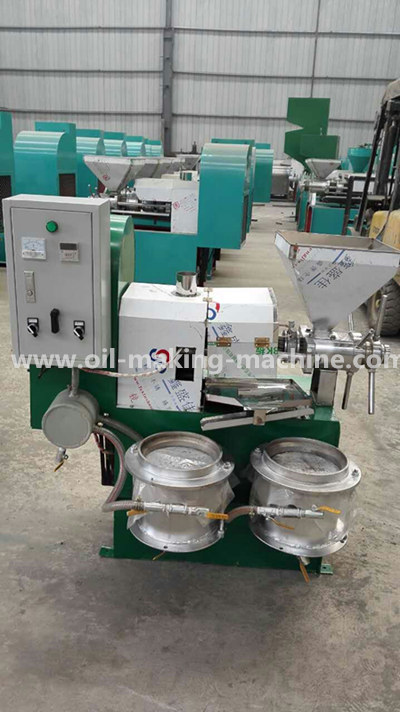
Author:Jintai networks Modified date:2024-7-23 10:56:28

Introduction:
Sesame seeds, an ancient ingredient used in various cuisines worldwide, have recently gained popularity in the Cambodian market. The increased demand for sesame seeds has led to a transformation in the way these seeds are processed and utilized, particularly with the introduction of small oil press machines. This article explores the impact of these machines on the local market and their potential benefits for farmers and consumers alike.
Historical Context:
Sesame seeds have been a staple in Cambodian cuisine for centuries, primarily used as a flavor enhancer in dishes and desserts. However, the traditional methods of processing sesame seeds were labor-intensive and time-consuming, often resulting in low yields and poor quality oil. With the advent of small oil press machines, the process has become more efficient, allowing for higher quality oil production and greater economic opportunities for local farmers.
Small Oil Press Machines: A Game Changer:
Small oil press machines have revolutionized the way sesame seeds are processed in Cambodia. These machines are designed to extract oil from various types of seeds, including sesame seeds, with minimal effort and maximum efficiency. The machines are compact, easy to operate, and require minimal maintenance, making them an ideal solution for small-scale farmers and entrepreneurs looking to enter the market.
Benefits for Farmers:

The introduction of small oil press machines has had a significant impact on local farmers. By providing them with a more efficient and cost-effective way to process sesame seeds, these machines have helped increase their income and improve the overall quality of their products. Additionally, the machines have allowed farmers to expand their operations and explore new markets, creating additional revenue streams and economic opportunities.
Consumer Benefits:
The use of small oil press machines has also had a positive impact on consumers. The machines produce high-quality sesame seed oil that is rich in flavor and nutrients, providing a healthier alternative to imported oils. Additionally, the increased availability of locally produced sesame seed oil has led to a decline in prices, making it more accessible to a wider range of consumers.
Environmental Impact:
The use of small oil press machines has also had a positive environmental impact. These machines are designed to minimize waste and maximize resource utilization, reducing the amount of energy and resources required to produce sesame seed oil. Furthermore, by supporting local farmers and reducing the need for imported oils, the machines help reduce the carbon footprint associated with transportation and packaging.
Conclusion:
The introduction of small oil press machines in the Cambodian market has transformed the way sesame seeds are processed and utilized. These machines have provided numerous benefits for farmers, consumers, and the environment, creating new economic opportunities and promoting sustainable practices. As the demand for sesame seeds continues to grow, it is likely that small oil press machines will play an increasingly important role in the local market, shaping the future of this ancient ingredient in Cambodia and beyond.
Prev :
Advancing Craftsmanship and Industry Strength with Multifunctional Oil Press Technology in Laos
Next :
Craftsmanship and Focus in the Thai Rapeseed Industry with Automatic Oil Press Machines